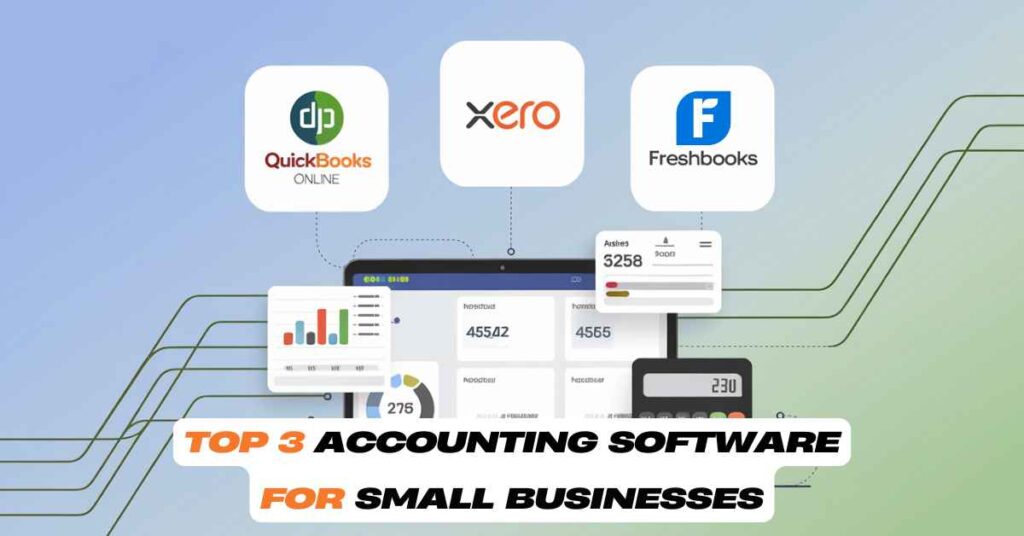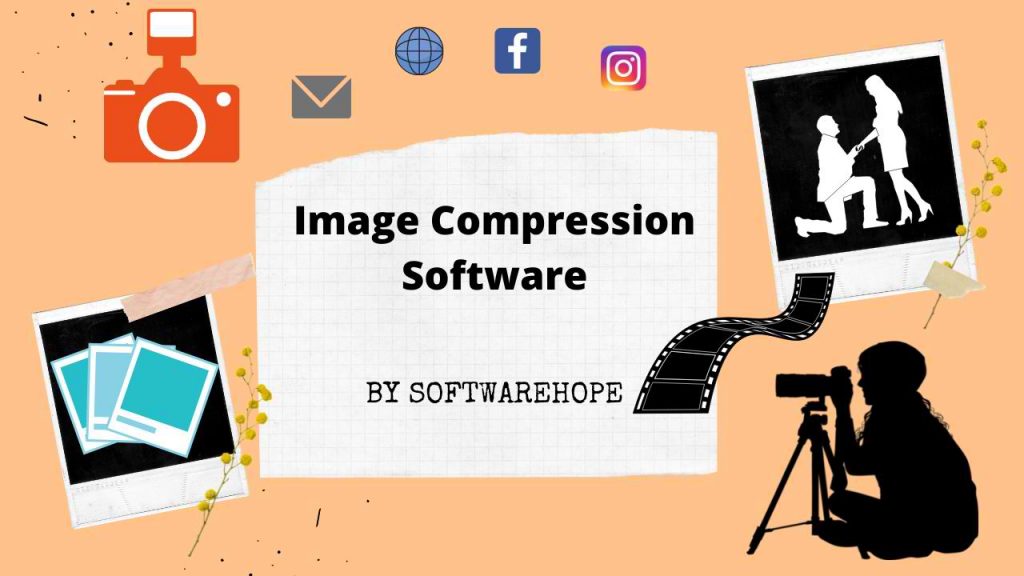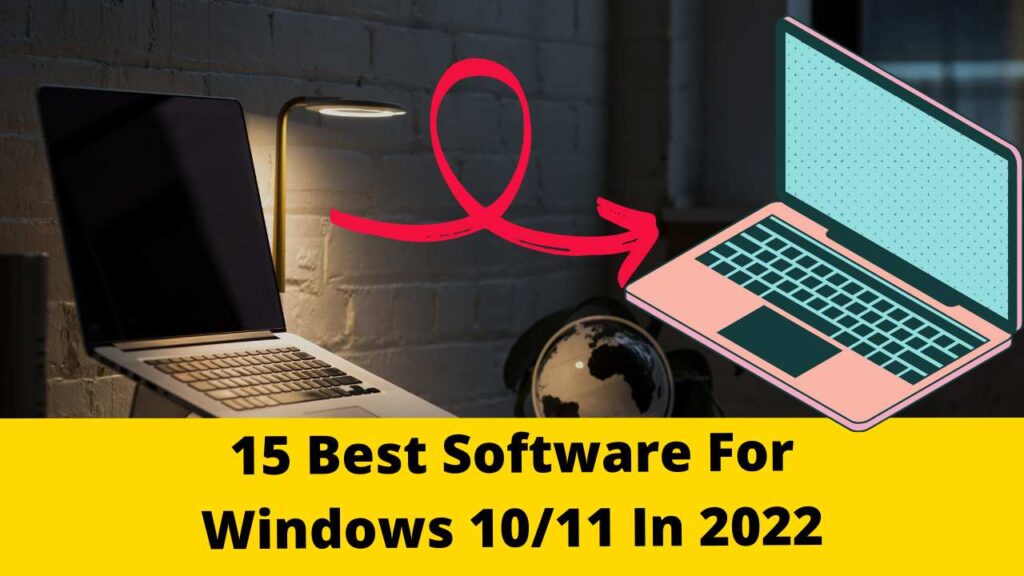Managing money is a big deal when you’re running a small business—it’s one of the most important things to get right. Good accounting software can make your life a lot easier by taking care of tasks like sending out bills (invoicing), keeping track of what you spend (expense tracking), paying your employees (payroll), and figuring out your taxes—all automatically. This means you don’t have to do everything by hand, which saves you time and helps avoid mistakes.that’s why choosing the Best Accounting Software is essential for your business.
It also keeps your financial records neat and accurate, makes sure you’re following tax rules, and lets you see how your business is doing financially whenever you want with up-to-date reports. Whether you’re a freelancer working solo, a new startup just getting going, or a small business that’s been around for a bit, picking the right accounting tool can help you work faster, cut down on errors, and keep things running smoothly.that’s why choosing the Best Accounting Software is essential for your business.
Here’s a closer look at why this matters and how it works in simple terms:
-Sending Bills (Invoicing): With accounting software, you can make and send professional-looking bills to your customers in just a few clicks. It can even remind them to pay if they forget, so you don’t have to chase them down.QuickBooks, Xero, and FreshBooks are among the Best Accounting Software options for invoicing.
-Tracking Spending (Expenses): It keeps an eye on what you’re spending money on—like supplies, rent, or travel—so you know exactly where your cash is going without digging through receipts.
-Paying Employees (Payroll): If you have workers, the software can calculate their pay, take out taxes, and make sure they get paid on time, all without you doing the math yourself.
-Handling Taxes: Taxes can be tricky, but the software figures out what you owe and helps you file them correctly, so you don’t get in trouble with the government.
-Seeing the Big Picture: It gives you reports—like how much money you’re making or losing—that are easy to understand, so you can make smart decisions about your business.
No matter what kind of small business you have, there’s a tool out there for you. For example, freelancers might just need something simple to track a few clients, while a growing business with employees might need more features. The right software saves you hours of work, stops little mistakes from turning into big problems, and helps your business run better overall.That’s why small businesses need the Best Accounting Software for smooth financial management.
Below, I’ll list some of the best accounting software options for small businesses in 2025. I’ll break down what they do, how much they cost, their good points and not-so-good points, and what people who use them say about them. This way, you can pick the one that fits your needs without any fuss!
Table of Contents
Comparison of Top 3 Accounting Software for Small Businesses
If you’re looking for the best accounting software for your business, it can be tough to choose the right one. To help you decide, we’ve compared three of the most popular accounting tools: QuickBooks Online, Xero, and FreshBooks. Below is a quick comparison based on ratings, pricing, core features, and device compatibility.
| Sr | Image | Name | Rating | Pricing | Compatibility | Features | Website | Details Page |
|---|---|---|---|---|---|---|---|---|
| 1 |

|
QuickBooks Payroll |
4.2
|
Paid | Windows, Mac, iOS, Android |
|
Visit Website | View Details |
| 2 |

|
Xero |
5.0
|
Paid | Windows, Mac, Linux, iOS, Android, Web-based |
|
Visit Website | View Details |
| 3 |

|
FreshBooks |
5.0
|
Paid | Windows, Mac, iOS, Android, Web-based |
|
Visit Website | View Details |
1. QuickBooks Online
QuickBooks Online, developed by Intuit, is one of the most widely used accounting software solutions, particularly for small and medium-sized businesses. It offers a comprehensive range of features, including invoicing, expense tracking, payroll processing, inventory management, and tax preparation. Cloud-based and highly scalable, QuickBooks Online is ideal for businesses looking for an all-in-one solution that integrates with third-party applications such as PayPal, Shopify, and Square.
With multiple pricing plans, QuickBooks caters to businesses of different sizes, from sole proprietors to enterprises. Its user-friendly interface makes financial management accessible even for those without an accounting background, while robust automation features help save time on repetitive tasks.
Key Features
- Invoicing & billing
- Expense and mileage tracking
- Financial reporting (profit & loss, cash flow, balance sheets)
- Payroll processing (in higher-tier plans)
- Inventory tracking
- Automated bank reconciliation
- Multi-user access with different permission levels
- Integration with over 750+ business apps
Pros & Cons
✅ Pros
- Comprehensive feature set suitable for small to mid-sized businesses
- Integrates with various business tools
- Cloud-based, accessible from anywhere
- Offers detailed financial reporting
❌ Cons
- Higher price compared to competitors
- Can be complex for beginners
- Customer support response time varies
Compatibility: Accessible via web browsers, with mobile apps available for both iOS and Android devices.
Pricing:
Simple Start: $35/month.
Essentials: $65/month.
- Plus: $99/month.
- Advanced: $235/month.
Note: Pricing may vary; always check the official website for the most current information.
2. Xero
Xero is a cloud-based accounting software designed specifically for small businesses, freelancers, and startups. It is known for its ease of use and strong automation capabilities. With Xero, business owners can track financial transactions, reconcile bank statements, send invoices, and manage payroll seamlessly.
One of Xero’s standout features is its strong collaboration tools, allowing accountants and bookkeepers to work together efficiently. It supports multi-currency transactions and integrates with over 1,000 third-party applications, making it highly customizable.
Key Features
- Smart invoicing with online payment options
- Automated bank feeds and reconciliation
- Expense and bill tracking
- Inventory management
- Payroll and tax calculation
- Multi-currency support
- Mobile access via iOS and Android apps
Pros & Cons
✅ Pros
- User-friendly and intuitive interface
- Excellent for collaborating with accountants
- Strong third-party integration options
- Affordable pricing for startups and small businesses
❌ Cons
- Payroll features are not available in all countries
- Customer support is only available through email and chat, no phone support
- Takes time to set up and customize
Compatibility: Accessible through web browsers, with mobile applications available for iOS and Android platforms.
Pricing:
Early: $15/month
Growing: $42/month
Established: $78/month
3. FreshBooks
FreshBooks is an easy-to-use accounting software designed for freelancers, self-employed professionals, and service-based small businesses. It focuses on simplicity and automation, making it ideal for users with minimal accounting experience.
FreshBooks specializes in client invoicing, time tracking, and expense management. It is widely used by consultants, agencies, and freelancers who bill clients for time-based work. The software also includes project collaboration features, allowing businesses to work closely with their teams and clients.
Key Features
- Customizable invoices with automated reminders
- Expense tracking with receipt capture
- Time tracking for billable hours
- Financial reporting and cash flow management
- Online payments via credit cards and bank transfers
- Project management tools
- Multi-user access with role-based permissions
Pros & Cons
✅ Pros
- Simple and user-friendly, even for beginners
- Strong focus on invoicing and client billing
- Excellent customer support
- Mobile app provides full functionality on the go
❌ Cons
- Limited inventory management features
- Not ideal for complex businesses with advanced accounting needs
- Can be expensive for businesses requiring multiple users
Compatibility: Available via web browsers, with mobile apps for both iOS and Android.
Pricing:
Lite: $19/month
Plus: $33/month
Premium: $60/month
(Check FreshBooks’ official website for updated pricing.)
Vijay Datt is a website developer, software expert, and SEO specialist. He writes about the latest software, graphic design tools, and SEO strategies. With expertise in web development and image creation, he helps businesses grow online. His articles provide valuable insights to enhance digital success.




